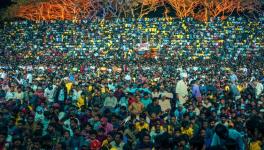South African Women Emerging as a Continental Football Force
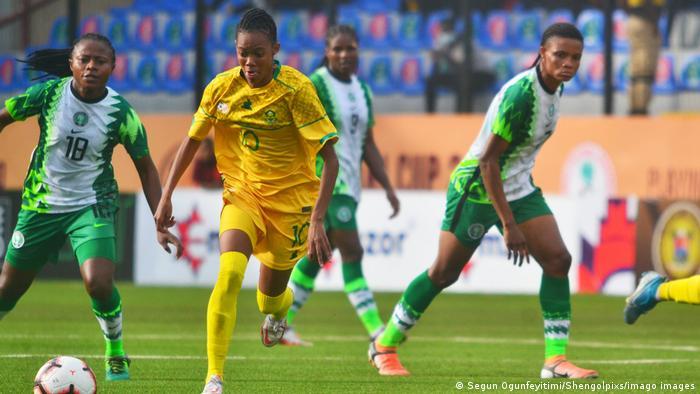
South Africa defeated Nigeria in Lagos in September to announce themselves as a continental force.
On November 19, Mamelodi Sundowns Ladies made a giant leap as they won the inaugural CAF Women's Champions League title. The South African club defeated Ghana's Hasaacas Ladies 2-0 at Cairo's June 30 Stadium with goals from Chuene Morifi and Andisiwe Mgcoyi.
There were no fans inside the arena, but it did not dampen the enthusiasm of the Mamelodi Ladies, who celebrated their title with gleeful joy.
It is the most significant success that the team has achieved since it was founded in 2009 as a semi-professional club, a women's arm of the famous Mamelodi Sundowns, to give opportunities to women and girls to play football.
The CAF Women's Champions League wants to give women footballers on the continent more opportunities to play professionally after years of overlooking them. And the South Africans seized that opportunity from among the eight teams present at the championship in Egypt.
"The success that our coach Jerry [Tshabalala] and our team have had is definitely going to inspire young girls to come and join our club. So, we're making sure that the infrastructure is there to take care of them and nurture that talent," Sundowns chairman Tlhopie Motsepe told media when the victorious women returned to Johannesburg.
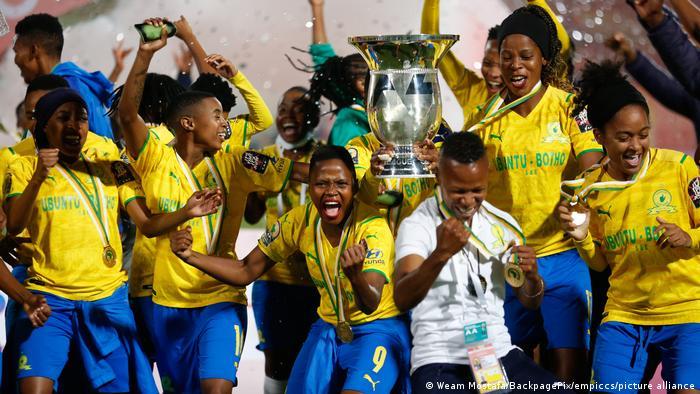
Mamelodi Sundowns Ladies won the CAF Women's Champions League
International progress
The Mamelodi Ladies success was foreshadowed by the Banyana Banyana, South Africa's national women's football team, at the Aisha Buhari Cup in September. The Banyana defeated their long-time rivals Nigeria to lift the title.
The manner of the victory, a 4-2 wipeout, left the Super Falcons, 11-time African women's champions, dazed. It was a reward for South Africa, who lost their last meeting in the final of 2018's African Women's Cup of Nations on penalties after a goalless draw in regular time.
In Lagos, South Africa announced their arrival as a force on the continent and signposted their growth.
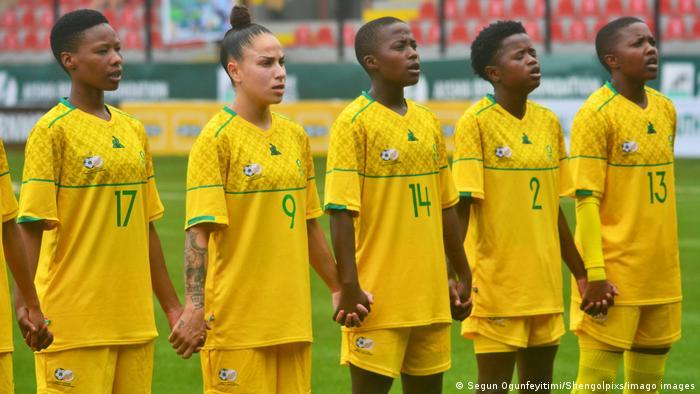
Banyana arising as a formidable force
Banyana qualified for their first FIFA Women's World Cup in 2019 after two previous appearances at the Olympic Games. Alongside the African Cup, the regional COSAFA Cup ensures the team is regularly exposed to international football.
"Between 2016 and now, women's football has had access to more international matches than during my entire time as a player because of the increase in resources that the association is putting in," Lydia Monyepao, Chief Operating Officer of the South Africa Football Association (Safa), told DW.
One of a growing number of retired footballers now working at Safa, Monyepao's work is to grow football in a country where more women are likely to play netball.
A winning women's football strategy
The Safa Vision 2022 has gender equality as one of its pillars, which has ensured that all women's national teams have female head coaches in charge.
"When a woman coaches another woman, they understand each other better. They understand what affects the players and sympathize with them," said Monyepao.
They are also training many women to become referees and ensuring that former players receive the required coaching education to attain international certifications. The Hollywoodbets Super League is also ensuring women footballers are treated as professionals, paid better and on time, keeping women footballers active for longer and focused on the game.
In 2020, Safa announced that over 400,000 women and girls were registered as active footballers on its MySAFA web platform. The association can monitor the progress of these players and make resources available to communities that need them. It is an important index on a continent where data is hard to find.
South Africa is also a pioneer on the continent with an active women's university football league. An eight-team tournament is played annually among the country's leading universities, and it has provided talented players for the national team.
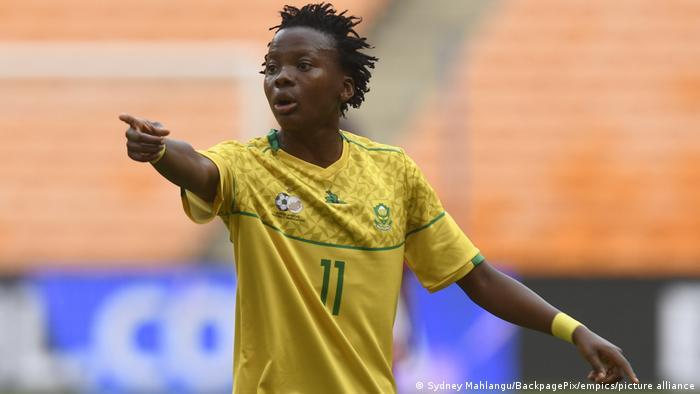
Banyana star Thembi Kgatlana emerged from Varsity Sports
Thembi Kgatlana, who emerged from the University of the Western Cape and now plays at SD Eibar in Spain's Primera Division Femenina, made history as South Africa's first Women's World Cup goal scorer in France in 2019.
Challenges to overcome
Yet, South African women still face sexism, prejudice, and violence, and low funding can affect access to the sport for girls.
"Despite the recent successes of Banyana Banyana, it is difficult to challenge and change the ecosystem around a sport that resides in a traditionally masculine domain," says Jos Dirkx, founder of the non-governmental organization, Girls & Football SA, that has worked with the national team since 2010.
"This challenge isn't just across the African continent; we notice it in Europe and North America, as well."
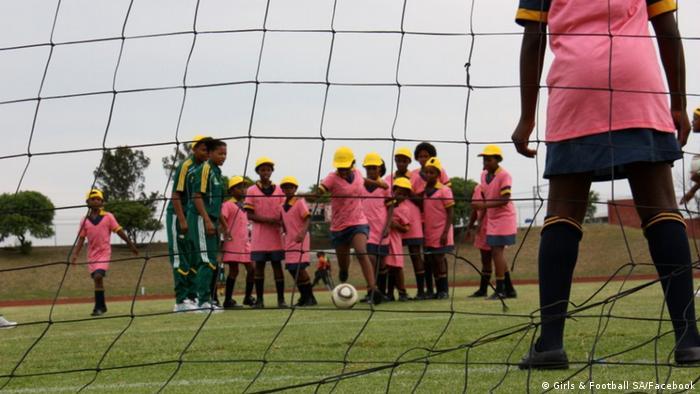
The next generation of South African women footballers must be found early
However, Monyepao's hope is to use this positive wind to catch a new generation of young women for her sport.
"We want to focus on getting girls playing football in schools regularly by building the structures for the younger players. We need to attract them to come and play football early before they can go and play netball because you can get them to learn the kind of techniques you want them to learn at a young age," she said.
South Africa's immediate plans are to qualify and try to win their first title at the African Women's Cup of Nations in Morocco in 2022. They also hope to qualify for the 2023 FIFA Women's World Cup in Australia and New Zealand.
But more important is laying the right foundations.
"Countries that are taking women's football seriously are the ones that will benefit the most in the near future," Monyepao concluded.
Get the latest reports & analysis with people's perspective on Protests, movements & deep analytical videos, discussions of the current affairs in your Telegram app. Subscribe to NewsClick's Telegram channel & get Real-Time updates on stories, as they get published on our website.
















